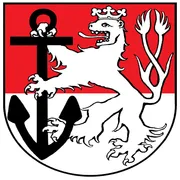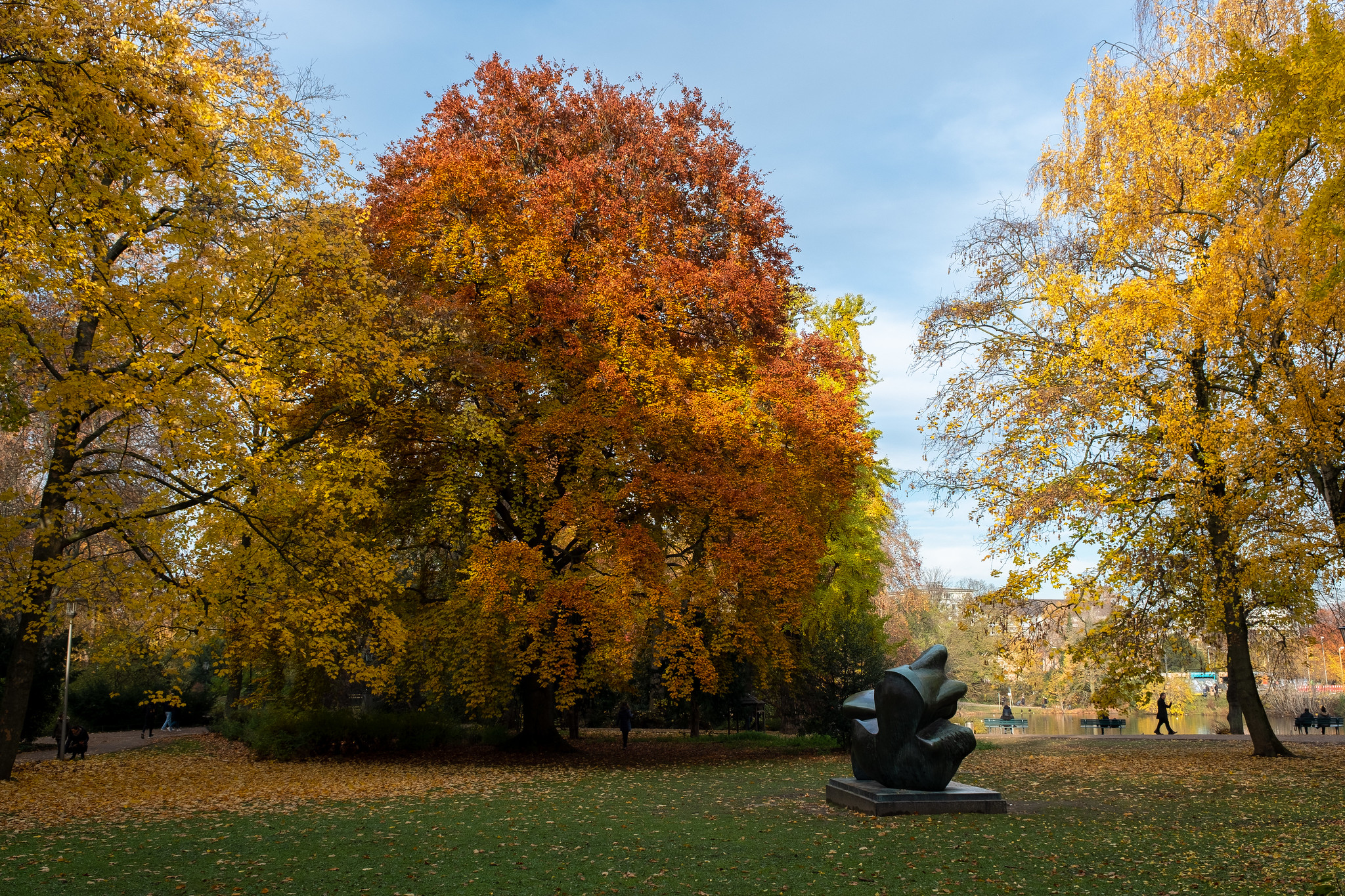Hofgarten, established in 1769, is the oldest public park in Düsseldorf, Germany. This expansive green space spans 27 hectares in the heart of the city, offering a tranquil retreat for locals and visitors alike. The park’s beautiful landscaping features manicured lawns, winding paths, and a diverse array of trees and flowers. Hofgarten is also home to numerous monuments and sculptures, including works by renowned artists such as Henry Moore and Aristide Maillol. Notable landmarks within the park include the Jägerhof Palace, the Hofgärtnerhaus, and the Schloss Jägerhof. With its rich history, stunning natural beauty, and cultural significance, Hofgarten remains a beloved destination for relaxation, recreation, and appreciation of art and nature in Düsseldorf.
Nestled in the heart of Düsseldorf, the Hofgarten stands as a testament to the city’s rich history and commitment to green spaces. As the oldest public park in the city, this verdant oasis has been a beloved destination for locals and tourists alike for centuries. With its meticulously manicured landscapes and an array of impressive monuments, the Hofgarten offers visitors a chance to step back in time while enjoying the tranquility of nature.
Dating back to the 18th century, the Hofgarten was originally designed as a private garden for the Elector Jan Wellem. However, it wasn’t long before the park was opened to the public, becoming a cherished communal space for the people of Düsseldorf. As you stroll through the park’s winding paths, you can’t help but feel the weight of history beneath your feet.
One of the most striking features of the Hofgarten is its diverse collection of trees, some of which are centuries old. Towering oaks, majestic beeches, and graceful lindens create a lush canopy overhead, providing welcome shade on sunny days and a habitat for various bird species. The park’s landscaping is a masterful blend of formal gardens and more naturalistic areas, offering something for every taste.
As you explore the Hofgarten, you’ll encounter numerous monuments and sculptures that add to its cultural significance. Perhaps the most famous is the Jägerhof Palace, a stunning example of Baroque architecture that now houses the Goethe Museum. The palace’s elegant façade and surrounding gardens transport visitors to a bygone era of aristocratic splendor.
Another notable landmark within the park is the Schloss Jägerhof, a charming hunting lodge that dates back to the 18th century. Today, it serves as a museum dedicated to the history of gardening and landscape design, making it a fitting addition to the Hofgarten’s horticultural legacy.
Art enthusiasts will appreciate the various sculptures scattered throughout the park, including works by renowned artists such as Henry Moore and Tony Cragg. These contemporary pieces provide an interesting contrast to the park’s historical elements, creating a dynamic interplay between past and present.
One of the most poignant monuments in the Hofgarten is the Kriegerdenkmal, a war memorial dedicated to the soldiers who lost their lives in the Franco-Prussian War. This somber reminder of the park’s role in commemorating historical events adds depth to the visitor experience, encouraging reflection amidst the beauty of the surroundings.
As you continue your journey through the Hofgarten, you’ll come across the picturesque Hofgärtnerhaus, the former residence of the court gardener. This charming building now houses a café, offering visitors a perfect spot to relax and refuel while taking in the park’s serene atmosphere.
The Hofgarten’s central location makes it an ideal starting point for exploring Düsseldorf’s other attractions. Just a stone’s throw away, you’ll find the Rhine Promenade, the bustling Königsallee shopping street, and the city’s renowned museums and galleries.
Throughout the year, the Hofgarten plays host to various events and festivals, from open-air concerts to art exhibitions. These cultural happenings breathe new life into the historic park, ensuring that it remains a vibrant and relevant part of Düsseldorf’s social fabric.
As the sun begins to set, casting a golden glow over the park’s lush greenery, it’s easy to see why the Hofgarten has captured the hearts of generations of visitors. Whether you’re seeking a peaceful retreat from the urban bustle, a glimpse into Düsseldorf’s rich history, or simply a beautiful spot for a leisurely stroll, this enchanting park delivers on all fronts. The Hofgarten stands as a living testament to the enduring power of green spaces in our cities, inviting us to pause, reflect, and reconnect with nature in the midst of our busy lives.
The Hofgarten stands as a testament to Düsseldorf’s rich history and commitment to public spaces. As the city’s oldest public park, it offers visitors a serene retreat with its meticulously maintained landscaping and diverse array of monuments. The park’s enduring popularity and cultural significance make it a vital part of Düsseldorf’s urban fabric, providing both residents and tourists with a tranquil oasis that seamlessly blends natural beauty with historical importance.

